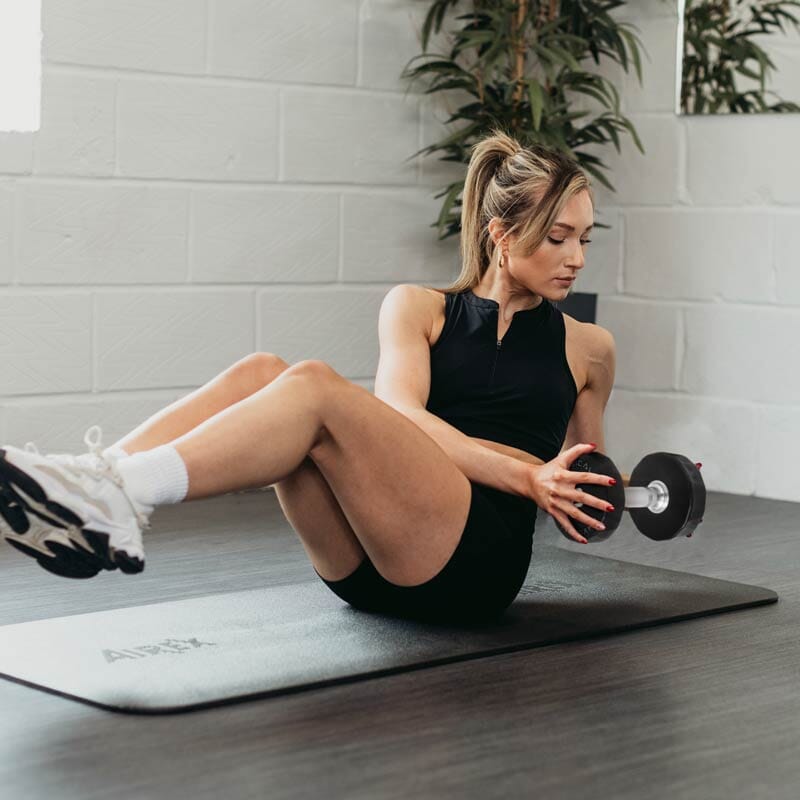London Marathon training? These are the types of training you should do.

Picture the scene: The bustling streets of London, a sea of runners pounding the tarmac, the electrifying atmosphere as thousands of spectators fill the pavements. Has this year’s London Marathon inspired you to tackle this iconic race for yourself in 2025?
If yes, then join us as we explore the types of training you should include in your long-distance running prep – the perfect preparation for running the London Marathon next year.
The importance of training for the London Marathon
It’s hard to overstate the importance of preparation for running the London Marathon.
This is a 26.2-mile race. Fail to train and you’re likely to end your marathon journey early – in injury.
Plus, the marathon isn’t just a physical feat; it’s a mental and emotional journey that requires meticulous preparation. Training correctly isn't just about crossing the finish line – it’s about enjoying the journey, staying injury-free and unlocking your full potential as a runner.
It’s about keeping your body and mind strong and resilient, as well as primed for optimal performance on the day.
And after all, this is a once-in-a-lifetime event for most participants. Why wouldn’t you put in the prep work to squeeze everything you can out of the day?

What training is required to run the London Marathon?
Your preparation for running the London Marathon can’t just be about logging miles, although this will certainly sit at the heart of your prep as you build your endurance, cardiovascular fitness and general race-readiness.
But as with any long-distance running prep, a holistic approach is in fact key to success. In addition to pounding the pavement, you’ll also need to cultivate strength, mental resilience and endurance, allowing you to approach race day with confidence.
Think of your body as a finely tuned machine: every aspect of your training plays a crucial role in ensuring peak performance.
It’s why a rounded approach to London Marathon training is required, integrating strength training, conditioning and recovery practices to hit peak performance at just the right time, reduce the risk of injury and give you the right mindset to achieve a personal best (PB) on the day!
It’s not just about being strong. It’s about being strong enough to push through when the going gets tough – and knowing you’re prepared will be a big factor in achieving that mental as well as physical toughness.
What strength and conditioning exercises should you do?
To excel in the London Marathon, your strength and conditioning training should focus on strengthening key muscle groups, such as the legs, hips, core and stabiliser muscles.

The strength you build will be vital in helping prevent injury on the day – as well as during the many miles you’ll put in as part of your London Marathon training, avoiding setbacks in your training due to niggles and injury.
With the heavy physical demands of the London Marathon, improved strength and conditioning will also optimise your race performance and give you the best possible chance of achieving that PB.
So, look to incorporate dynamic exercises such as heel-elevated squats, walking lunges, calf raises and seated medicine ball twists into your training regime, building functional strength and stability so you’re equipped to tackle the demands of long-distance running.

What gym equipment is needed for London Marathon training?
If you’re looking to equip your home gym with the necessary tools for your marathon training, look no further than Physical. If you’re a commercial gym or PT studio looking to support your members and clients with their London Marathon training, look no further than Physical.
From high-quality treadmills for the days you can’t get out on the road, to stationary bikes for cardio endurance, we put a big tick in the box of cardio equipment that will stand up to the rigours of long-distance running prep!
We’ve also got you covered for all your strength and conditioning requirements, from free weights – dumbbells, kettlebells, barbells and more – to add resistance to leg and core work, to an unparalleled choice of resistance bands to work those legs and hips.
And don't forget recovery essentials such as foam rollers, massage balls and muscle stimulators to aid in post-run cooldowns!
The London Marathon awaits!
Preparing for running the London Marathon is a journey that demands dedication, perseverance and strategic training. By incorporating a diverse range of workouts, from long runs to strength sessions, you’ll build the physical and mental resilience needed to conquer those 26.2 miles and achieve your potential in this iconic race.
The London Marathon is waiting – are you ready to rise to the challenge?







